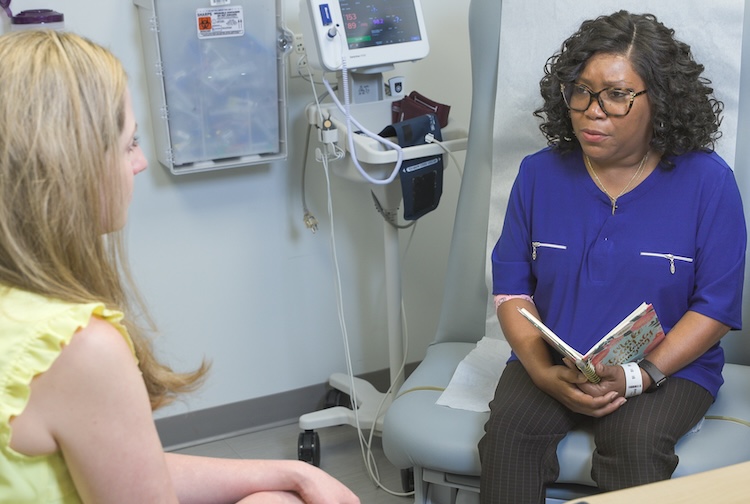VCU Health one of world's first sites to test canakinumab against COVID-19
May 11, 2020
Enrollment begins for drug approved to treat a type of juvenile arthritis
VCU has become one of the first sites in the world to begin clinical trials on the safety and efficacy of the drug canakinumab on patients experiencing a type of severe immune overreaction called cytokine release syndrome, which occurs in some patients with pneumonia due to the coronavirus.
Canakinumab works to neutralize a protein, Interleukin-1β, in order to suppress deregulated inflammation. It is FDA approved to treat a series of rare auto-inflammatory diseases and a type of juvenile arthritis, systemic juvenile idiopathic arthritis.
Cardiologist Antonio Abbate, M.D., Ph.D., medical director of the Clinical Research Unit at VCU Health and an associate director at the C. Kenneth and Dianne Wright Center for Clinical and Translational Research, is the study's principal investigator. He and his team are now screening potential participants for enrollment in the clinical trial.
COVID-19 patients who are experiencing cytokine release syndrome and who require oxygen but do not need a ventilator are eligible for the trial. The drug's manufacturer and trial sponsor, Novartis, hopes to bring more centers worldwide online in the coming weeks to expand patient enrollment to 450.
Subduing inflammation key
As VCU and hospitals worldwide work to combat the coronavirus from a number of angles, Abbate and Benjamin Van Tassell, Pharm.D., a professor in VCU's School of Pharmacy and a co-investigator of the study, are interested in impeding the symptoms' progression from moderate to severe to fatal. It's the inflammation that may be fatal, Van Tassell said.
“A little bit of inflammation can trigger more inflammation, which triggers more and more,” Van Tassell remarked. “That seems to be the most dangerous part of a COVID-19 infection — when you enter into this hyperinflammatory state.”
Preliminary evidence suggests that focusing on drugs that combat hyperinflammation is a good strategy for saving lives. Interleukin-1β-blocking strategies may have the most promising safety data so far, Van Tassell said.
VCU involved in numerous trials tackling coronavirus
The canakinumab study joins other drug treatment trials already active at VCU, including two trials with an antiviral drug developed for Ebola, remdesivir, and another with a drug developed to treat rheumatoid arthritis, sarilumab. In an April 29 release by Gilead Sciences, results of a clinical trial for patients with severe COVID-19 symptoms showed that remdesivir has promise as a treatment of COVID-19. These preliminary results were from 180 sites, including VCU Health. The FDA issued an emergency use authorization for remdesivir May 1.
“As providers around the world seek to find the best course of treatment for COVID-19 patients, our researchers across VCU and VCU Health are doing the hard work of ensuring the safety and efficacy of potential future treatment options,” said Peter Buckley, M.D., dean of the VCU School of Medicine, interim senior vice president for VCU Health Sciences and CEO of VCU Health.
“We are grateful to our teams for making investigational drug therapies a seamless part of our care and generating the data necessary to potentially make a variety of treatment options available to future COVID-19 patients nationally and globally,” he stated.
“With all of the moving pieces in the COVID-19 pandemic, it has really helped to be at a place like VCU that has the experience, the infrastructure, the personnel and the will to do this kind of trial,” Van Tassell said. “The best access to promising treatments has been through clinical trials, and, in that sense, VCU has been fortunate to have an established clinical trials program that can open its doors to developing and emerging treatments.”




